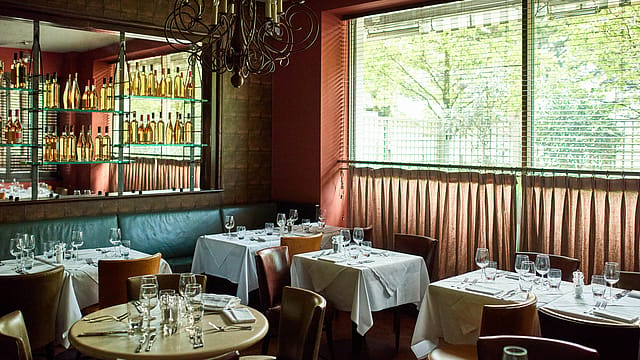Restaurants take on govt, say no illegality in 'service charge'
ADVERTISEMENT

The National Restaurants Association of India (NRAI) has said the levy of service charge by a restaurant is a matter of restaurant policy and there is no illegality in levying such charge.
This comes a day after the Department of Consumer Affairs expressed its displeasure over restaurants allegedly making service charges compulsory even though such charges are subject to the customer’s discretion.
Taking cognisance of the grievances registered by consumers on the National Consumer Helpline (NCH), the department had called the restaurant lobby on June 2 to discuss the issue.
"Information regarding the amount of service charge is mentioned or displayed by restaurants on their menu cards and otherwise also displayed on the premises, so that customers are well aware of this charge before availing the services," the National Restaurants Association of India says.
Once the customer is made aware of such a charge in advance and then decides to place the order, it becomes an agreement between the parties, and is not an unfair trade practice, it adds.
NRAI further says that Goods and Service Tax (GST) is also paid on the said service charge to the government.
"This matter had come up in 2016-17, and NRAI had provided its response to the government. There is nothing new which has been communicated by the department in its letter for the meeting on June 2," the restaurant body says.
Earlier, in a letter addressed to the restaurant body, Rohit Kumar Singh, secretary of the Department of Consumer Affairs, said that restaurants and eateries are collecting service charge from consumers by default, even though collection of any such charge is voluntary, at the discretion of consumers, and not mandatory as per law.
Consumers are forced to pay service charges, often fixed at arbitrarily high rates by restaurants, the letter said. It mentioned that consumers are also being "falsely misled on the legality of such charges and harassed by restaurants on making a request to remove such charges from the bill amount."
The government guidelines say that entry of a customer in a restaurant itself cannot be construed as consent to pay service charge. Any restriction on entry of consumers by way of forcing them to pay service charge amounts to "restrictive trade practice" under the Consumer Protection Act, the consumer affairs ministry said on Monday.
The guidelines mention that placing an order by a customer amounts to their agreement to pay the prices displayed on the menu card along with the applicable taxes. Charging for anything other than the aforementioned charges without express consent of the customer would amount to unfair trade practice as defined under the Act.